What life is really like for mums who have babies in prison
One woman recently gave birth but instead of taking her baby home, she returned with him to prison to serve out her sentence. We take a rare look inside the Sydney jail where mums get to look after their kids. See the video and pictures.
At just two days old, baby “Leo” looks like any newborn.
Slightly reddish face poking out from under his K-mart baby wrap and beanie, he clutches his mother’s finger while staring at her as she cuddles him close.
Born at a Western Sydney hospital, instead of going home, baby “Leo” – not his real name – has arrived at the Jacaranda Cottages in Emu Plains where he will live with his mother as she completes her prison sentence.
His arrival generates considerable excitement among the other children, who run out to greet their new “playmate”, one asking: “Can I touch him?”
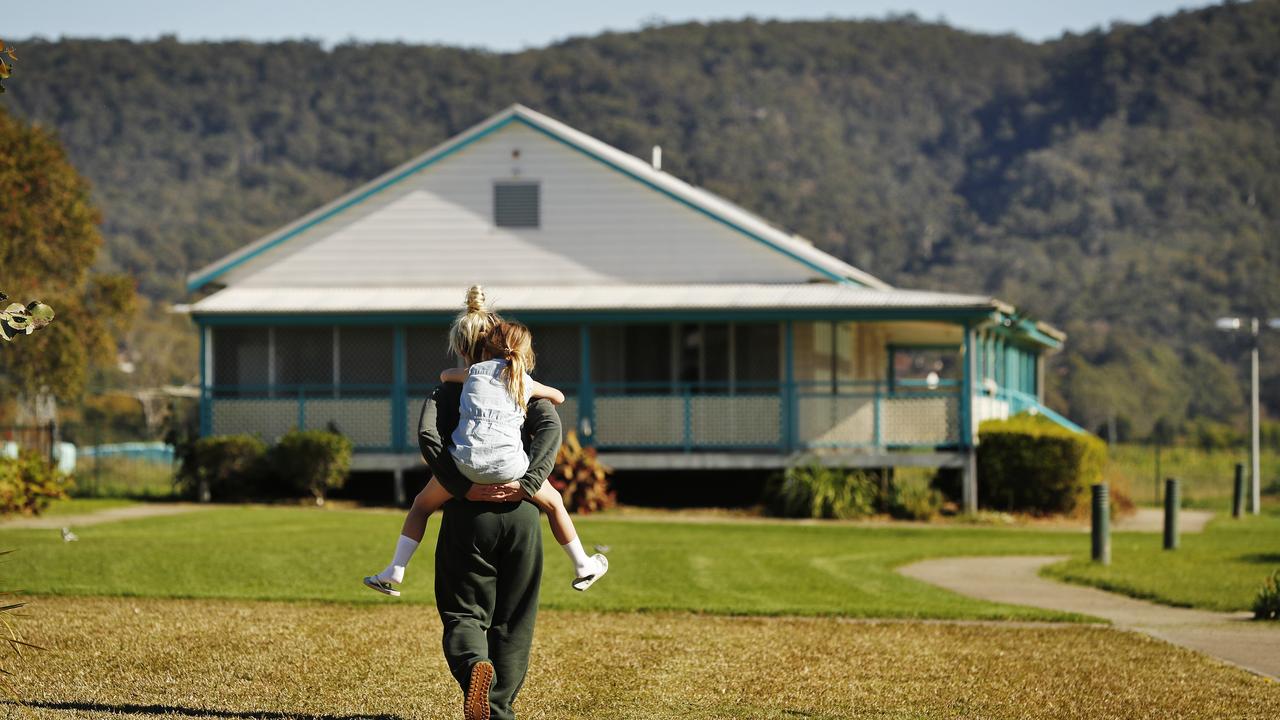

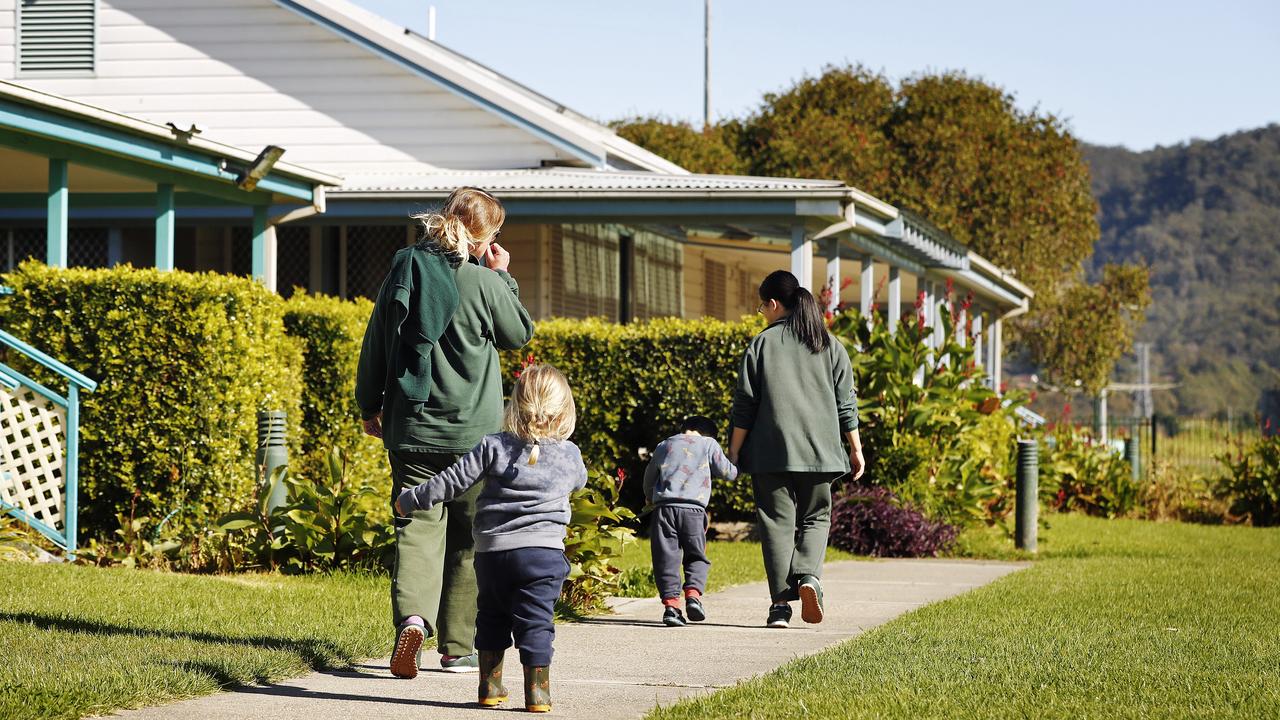
Leo is one of nine children living full-time at the purpose-built minimum-security facility as part of the Corrective Services NSW Mothers and Children’s Program, which allows a group of carefully-selected mothers to serve out their time while remaining the primary carer of their young kids.
While Emu Plains Correctional Centre next door is surrounded by security fencing topped with rolls of barbed wire, the women chosen to take part in the residential program live in self-contained cottages facing green lawns and a children’s playground with a communal playroom filled with toys.
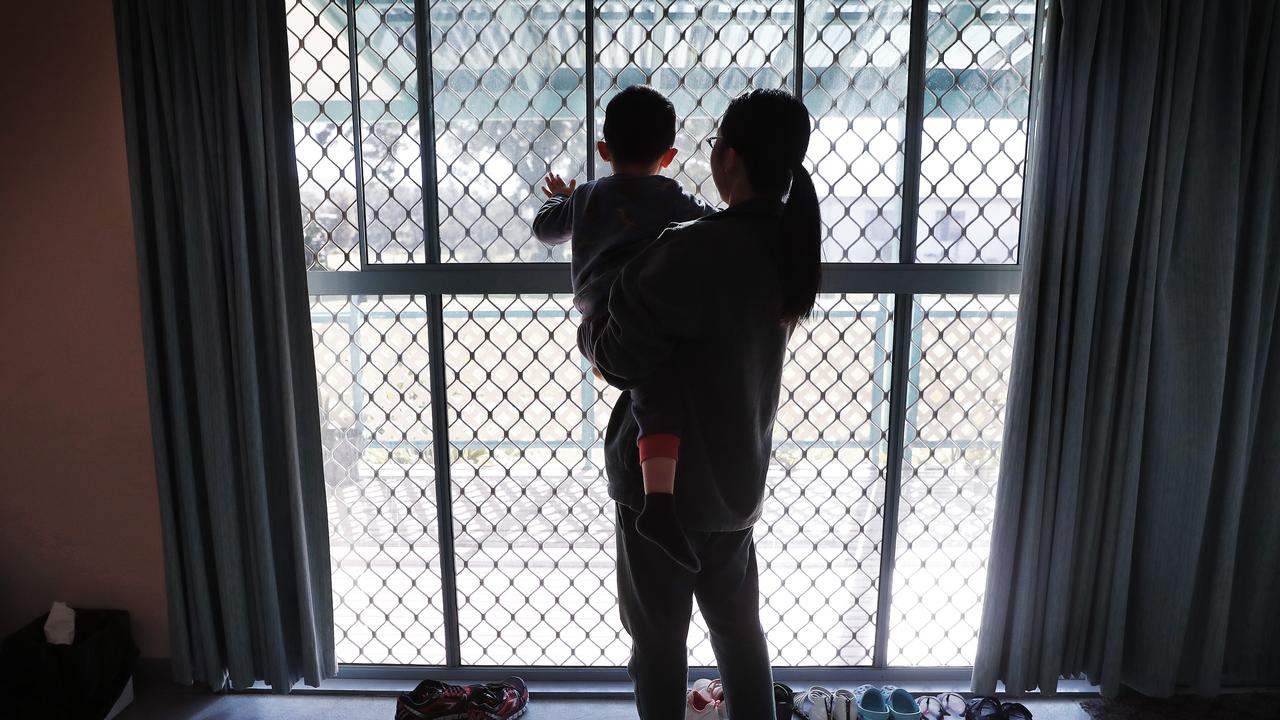
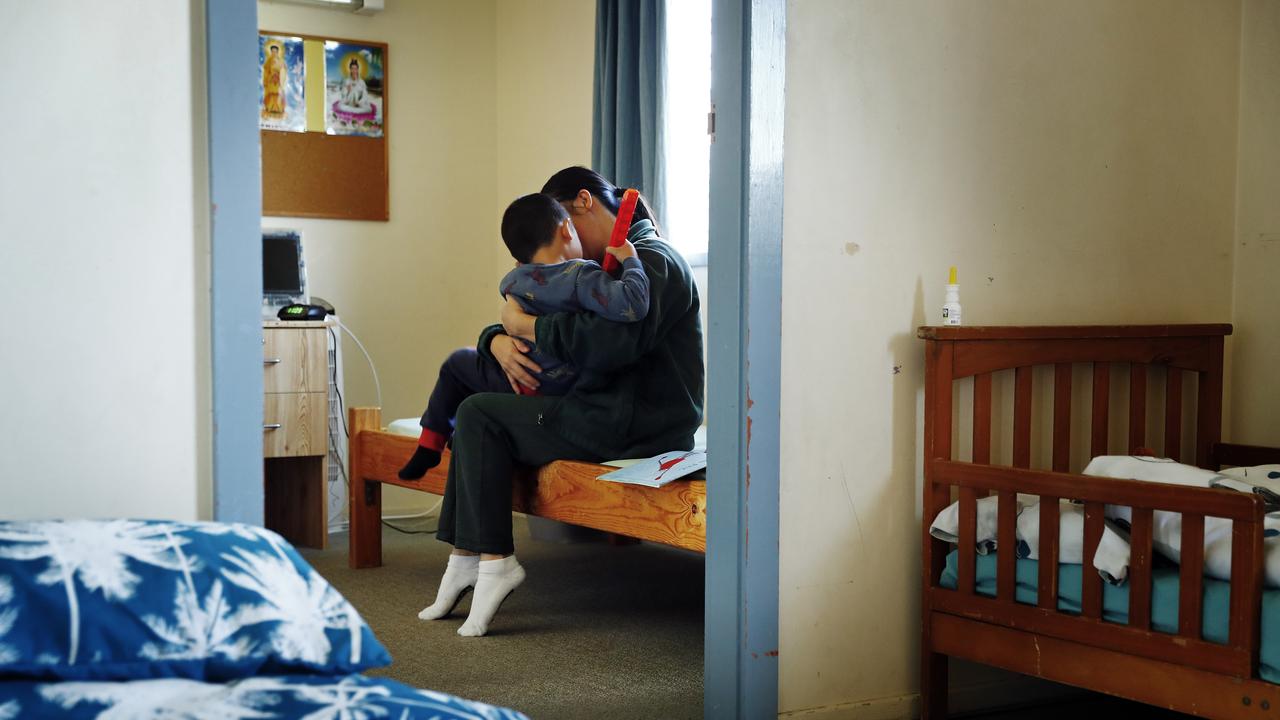
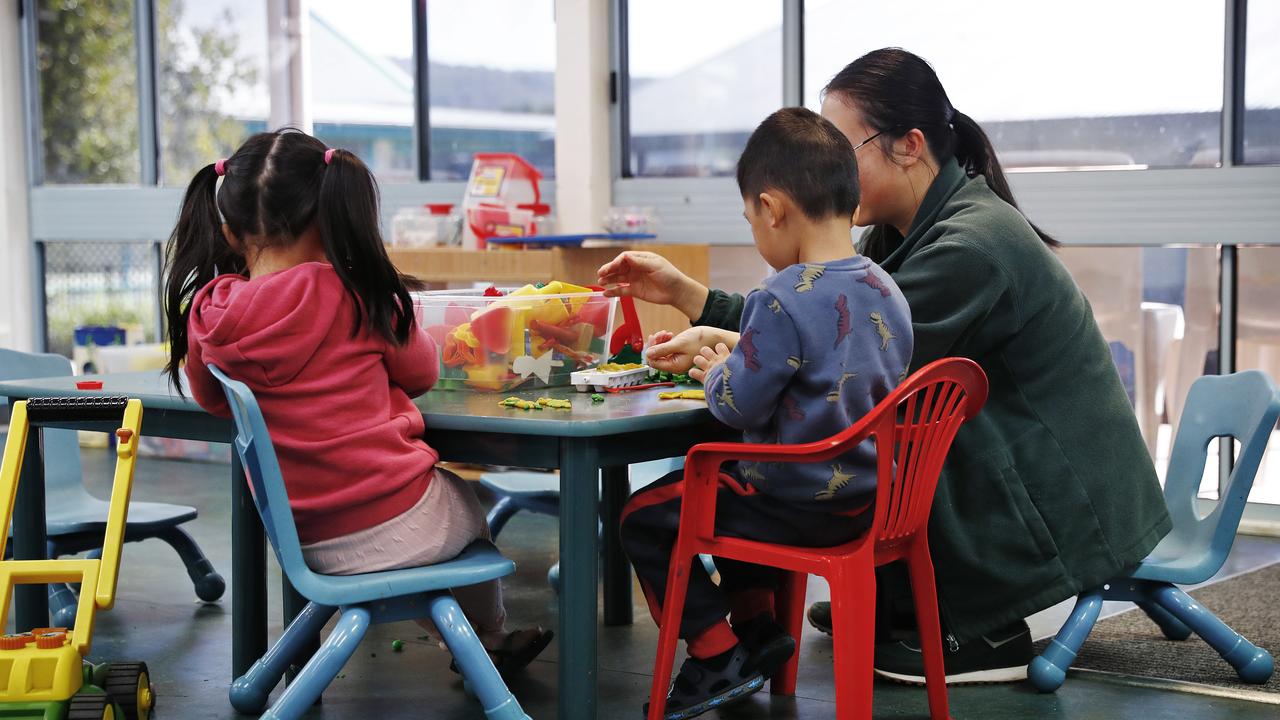
The surrounding fence has no barbed wire – and could easily be climbed over. But as the prison officer at the gate noted: “Most of them are just glad they are here. They’re not going to throw it all away.”
The Sunday Telegraph was given exclusive access to the women and children involved in the program, who spoke of what it is like to raise a baby while in prison.
Established in the late 1990s, more than 200 women and 380 children have been involved in the program. A few have returned.
However, program manager Belinda McInnes said if she encountered a mother again it was more likely to be out in the community, not back inside.
“I recently ran into one in Costco,” she said.
“She was working there. I heard her voice and thought, I know her.
“It is nice to see them getting on. Some of them call us or send Christmas cards.”
There are eight women on site, although that will rise to nine when a mother-of-six from Wellington prison arrives.

Three of her children aged four years and under will move in to one of the self-contained cottages she will share with another mum, while the other three older siblings will stay on weekends and during school holidays.
Not everyone can get into the program, with Ms McInnes assessing the women before taking part in a committee with Women Offenders principal adviser Kelly-Anne Stewart for the final decision.
Even women convicted of serious crimes such as manslaughter are considered, so long as they are deemed to be low risk, with most nearing the end of their sentences.
Not all the women are from lower socio-economic backgrounds – some “very wealthy” mothers from Sydney’s exclusive suburbs have also called Jacaranda home, many for fraud.
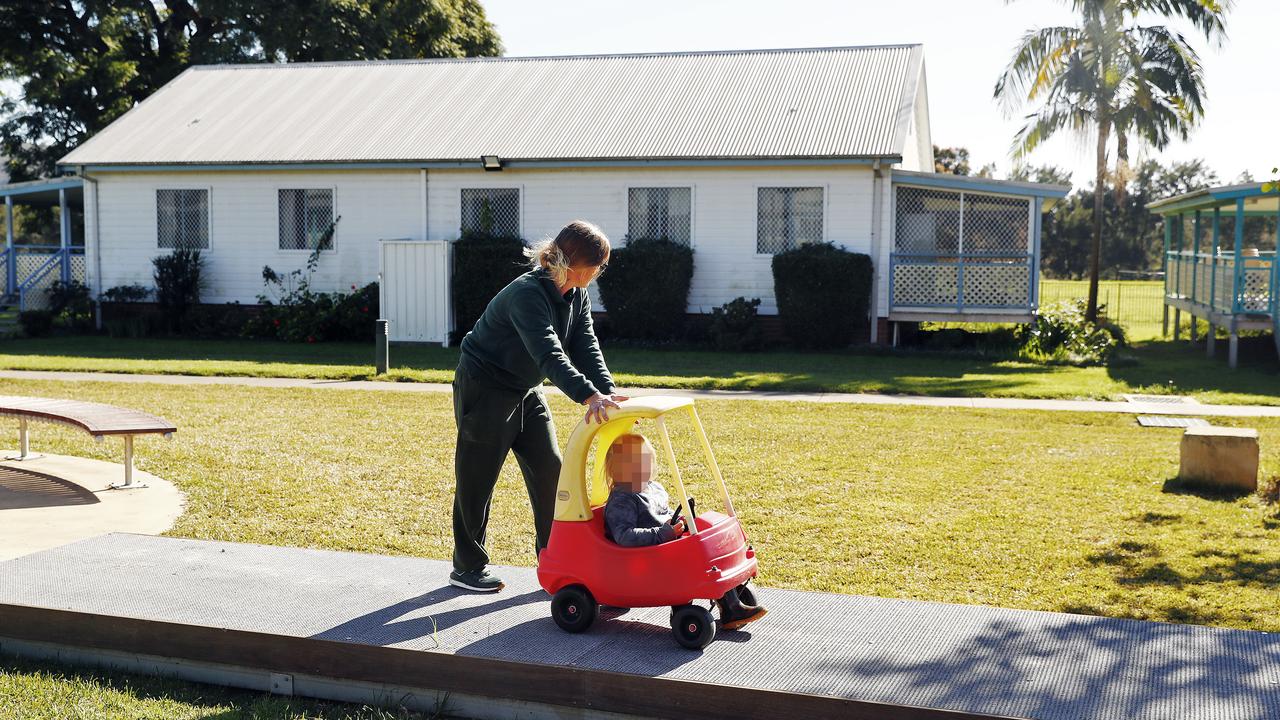
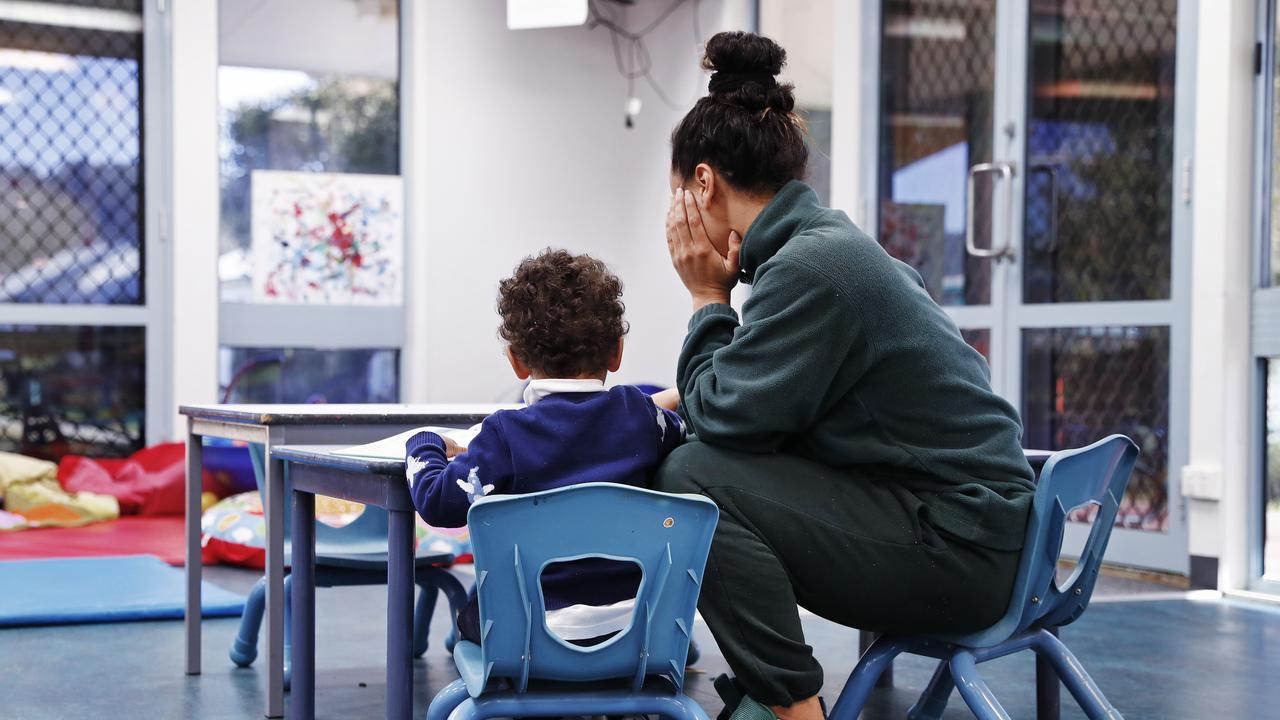
Ms McInnes has 45 on her “watch” list – women who are pregnant or who were caring for their baby when they were jailed. Most of them are yet to be sentenced.
“It’s a painfully emotional journey for them,” she said.
“I always carry boxes of tissues when I’m interviewing them.”
While there is some evidence that keeping a mother and child together help reduces recidivism, the primary goal of the program is more about maintaining the parental bond while ensuring any punitive measures do not adversely impact on children.
Asked whether her children knew where she was, the daughter of one of the eight mothers declared: “This is naughty school”.
“I told her this is where you come when you are naughty,” the mother explained.
The other younger children appear oblivious to their surroundings, eating cake and snuggling up under a blanket to read a book, with another clutching the hand of Ms McInnes, whom she declares she “really likes”.
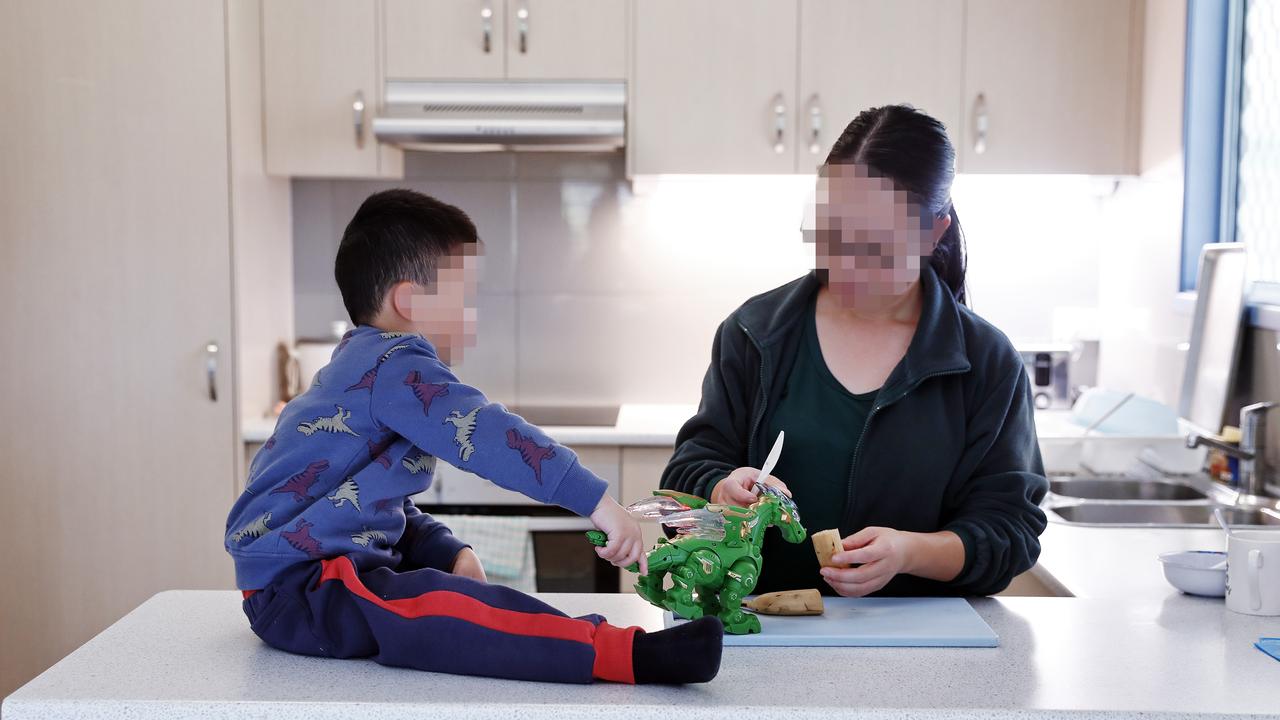
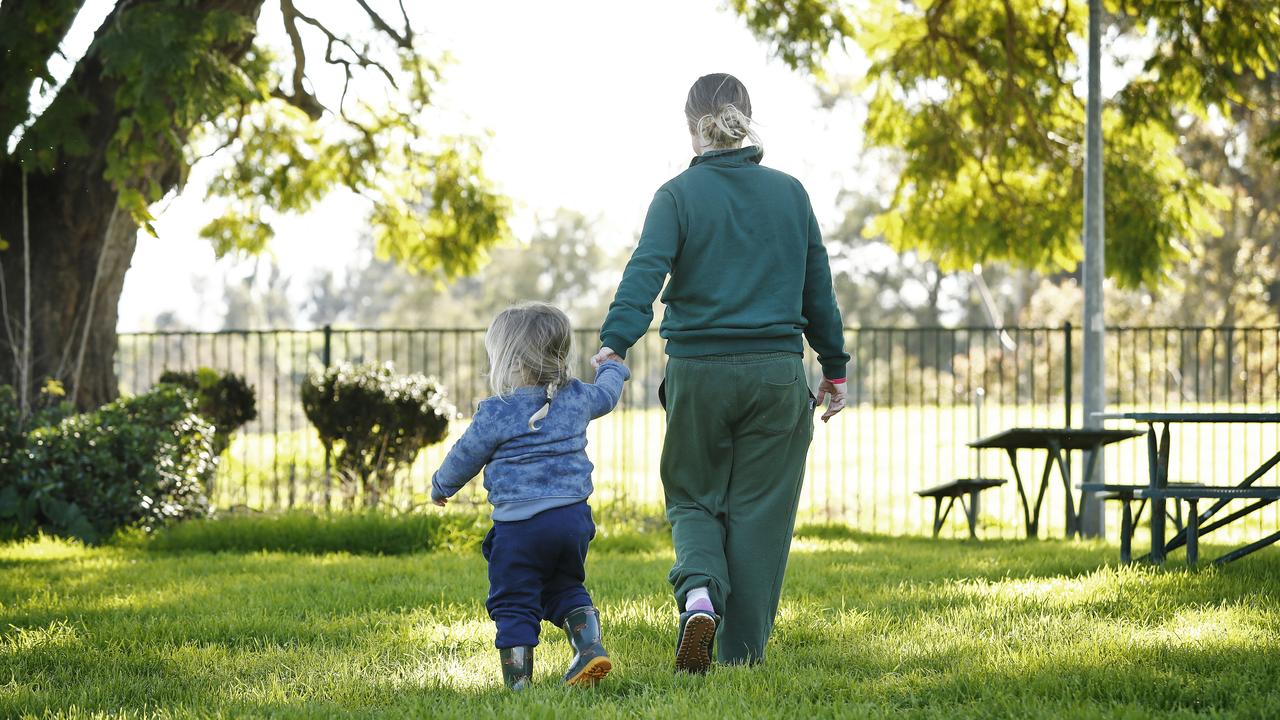
The period between being jailed and being reunited with their children was the hardest part of being in imprisoned, said another mother.
“When I first went to prison, I was waking up at 2am every night because I thought I could hear my son crying only he wasn’t there,” she said.
“It was really, really hard.
“I had to wait two years before I got here and could be with him again. I am so grateful. I’ve got 22 months left and I am counting down every day until we get out.”
While the younger children stay with their mums, the older children can attend a nearby preschool with the mothers escorted by a prison officer for drop-offs and pick-ups.
The mothers are allowed to change out of their prison greens when collecting their children, though sometimes the other parents cotton on, Ms McInnes said.
“Sometimes we have to change preschools,” she said.
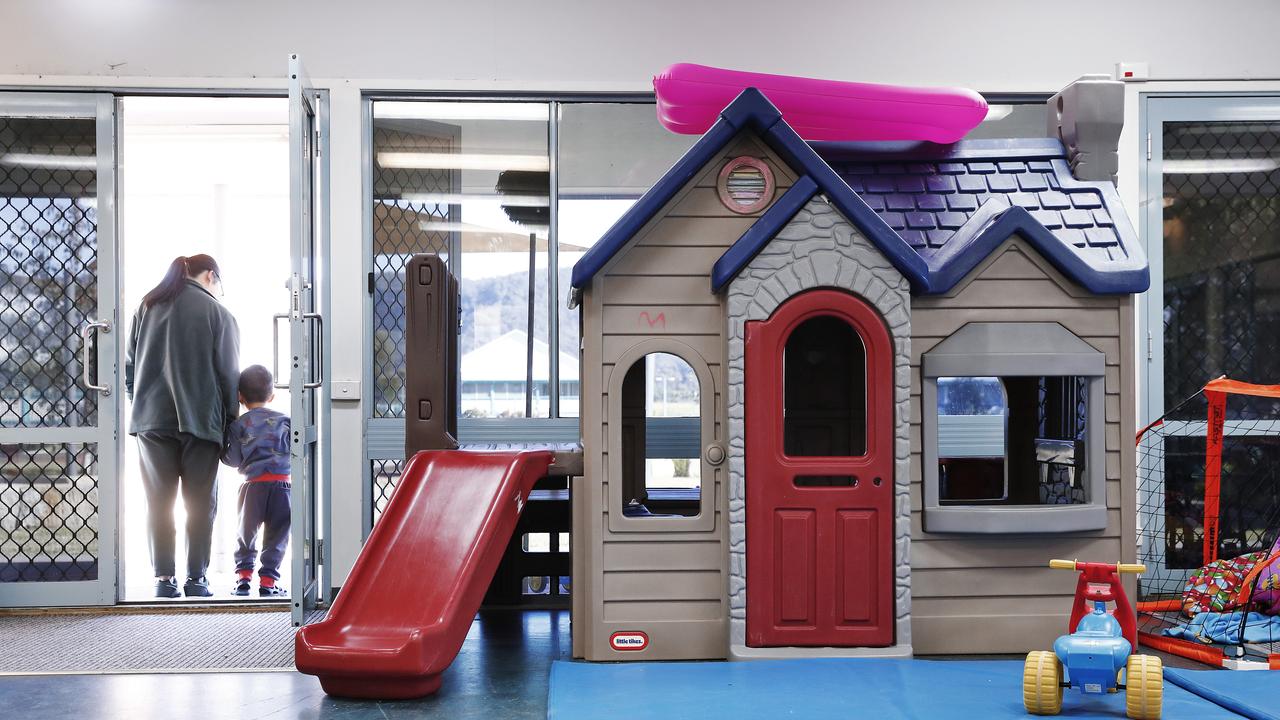
The women are also allowed to go on supervised shopping trips with their children, spending money they have either earned by working – usually at the local prison milk processing factory – or their family allowances.
During the school holidays, there are supervised visits to the cinema, roller-rink or local pool.
But despite the freedoms, the women are under no illusion that they are not in prison.
There is still a daily 6am muster. Another at midday, and again later in the afternoon before being locked in at 5pm, or “5.30pm in summer”.
There are various programs to attend – women in the correctional system suffer from high rates of sexual and domestic violence, so these are aimed at addressing specific issues which in turn aim to break the cycle of reoffending.
The pandemic also led to a further tightening of restrictions, with the women unable to have face-to-face visits by their other children or family members for more than a year.
Instead, they had to make do with video chats.
“It is very different to being at home,” Ms McInnes said.
“It is not easy. The women also carry a lot of guilt. There are a lot of emotions. For a prison, this place is fabulous – but it’s still a prison.”
More Coverage
Originally published as What life is really like for mums who have babies in prison





